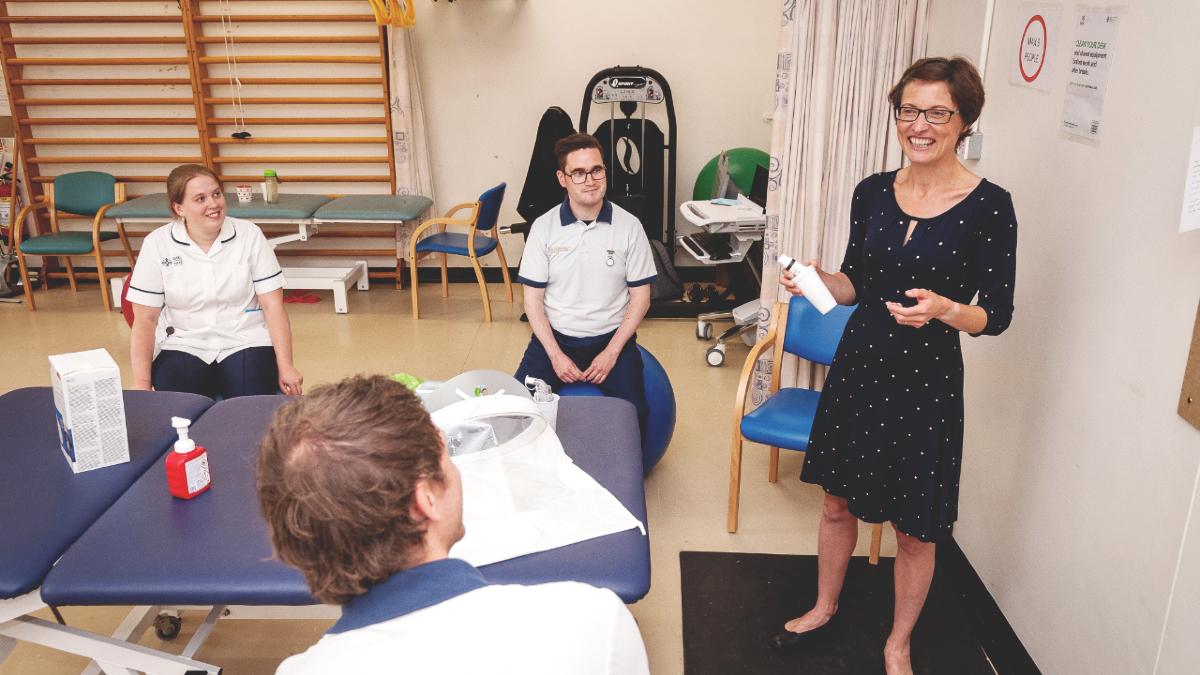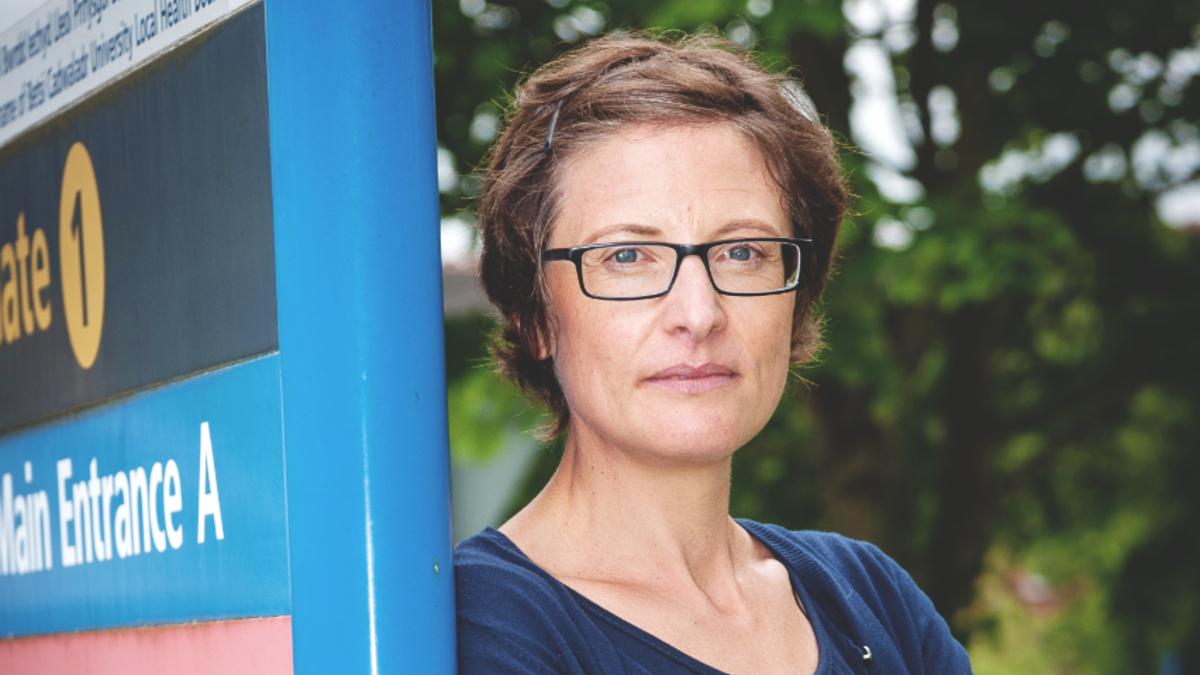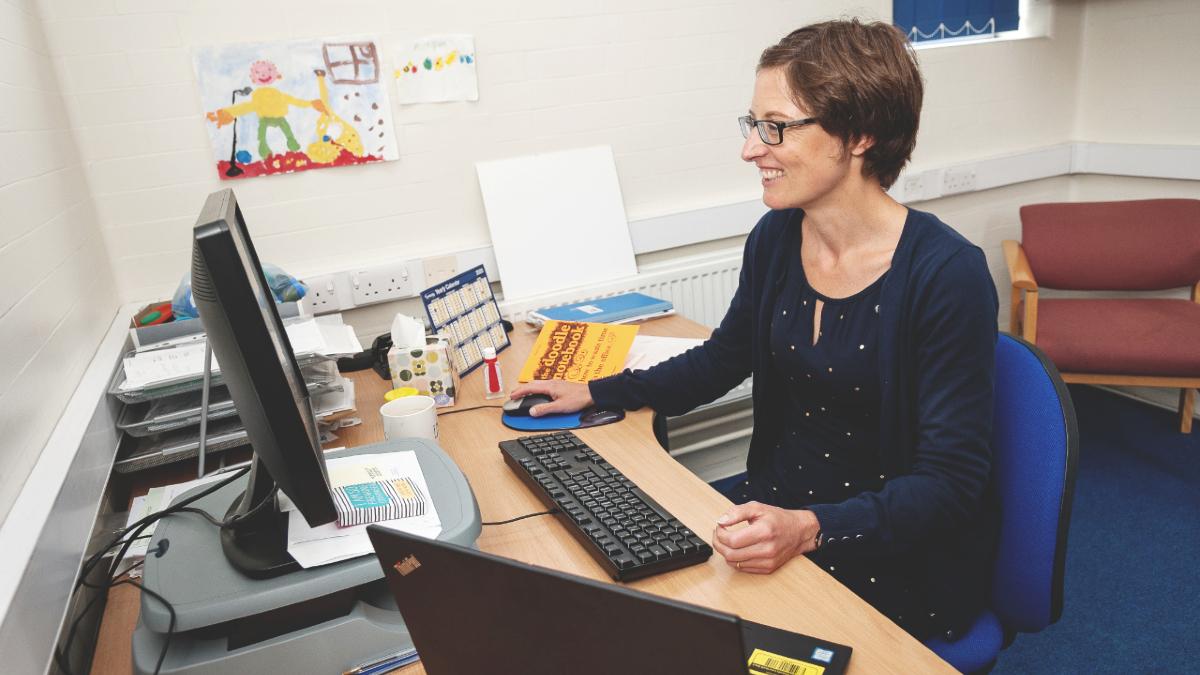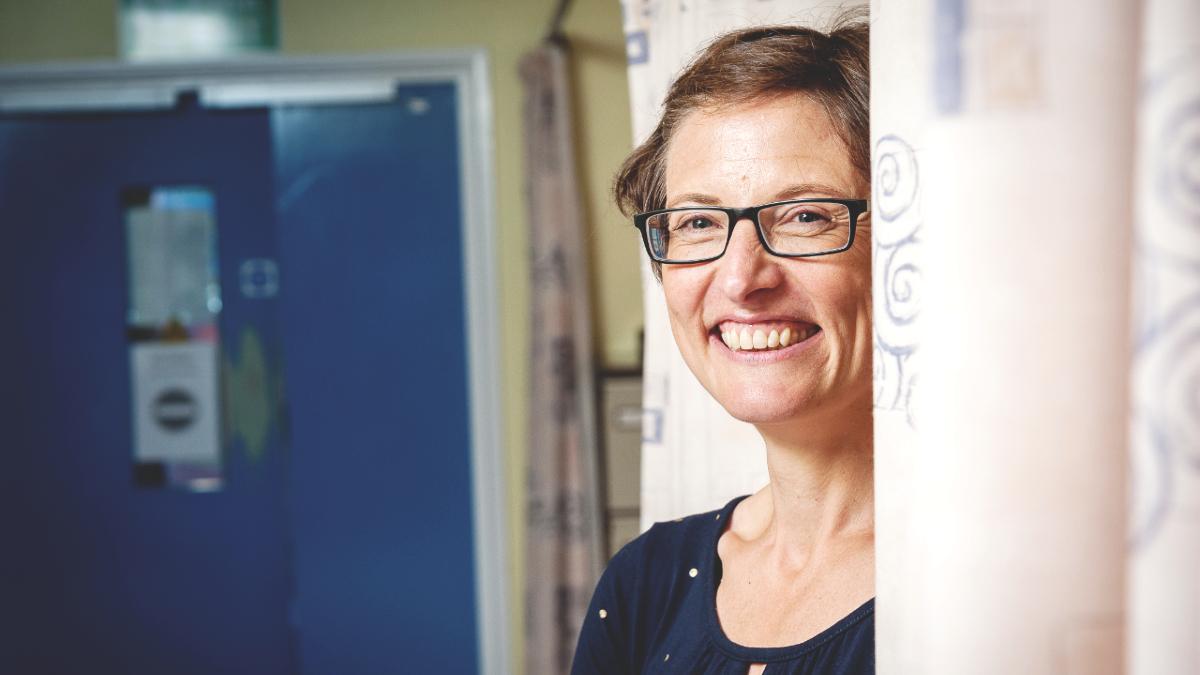An interview with the Wrexham-based physio and assistant director of therapies
Growing up in rural north Wales, Nesta McCluskey says she had an ‘absolute ball’ as a physiotherapy student in Manchester in the early 1990s.
‘In spite of living student life at 100mph’, McCluskey, now the assistant area director of therapies at the Maelor Hospital in Wrexham, says it did not come without big challenges.
‘I did run into mental health issues, particularly in the third year, which took a lot of support from friends and the university. I developed an eating disorder and it was really tough, not just for me, but for the friends I was living with and my family far away. But we got through it together.’
McCluskey says that she has not really shared these problems outside of friends and family before, but the opportunity of appearing in a student-focused edition of Frontline made her reflect on the fact that it is important to be open about mental illness – especially when Covid-19 is contributing to many psychological problems.
It’s important to tell those who might be in a similar boat that many people have wobbles, which at the time can be all consuming and lawful, and they can come back at other times, but they don’t define you.
'With the right experience and the right support you can get through. Here I am in a senior job in one of the biggest health boards in the country but at 21 I had big mental health problems.’
McCluskey says that over the months of the pandemic one of the things she has been very open about with the team is how normal it is to be anxious and that it’s okay.
‘I don’t know anyone who hasn’t had a wobble of some kind. I have had tears, other managers have had tears. People’s emotion comes out in all sorts of ways: tears, silence, not everyone responds in the same way.’
Becoming a physio
As a youngster living in Llanymynech (straddling Montgomeryshire in Wales and Shropshire in England) McCluskey had no vocation for physiotherapy.
‘I had a back injury and it was a physio who made it better and I thought it looked like an interesting job and that was about as much thought as went into it at the time. I did live in a small town with a lot of sheep and not much else going on. I couldn’t wait to go to a big city,’ she explains.
After A-levels she trained at Manchester Royal Infirmary and after graduating got a job at St James’s Hospital in Leeds where the first stirrings of interest in management came from an inspiring manager, an old style hospital superintendent: ‘She got that balance of knowledge and leadership right, she knew how to talk to people, to make them feel welcome.’
During rotation she fell in love with paediatrics and eventually moved to Leeds General Infirmary as part of the acute on-call paediatric rota. There followed a period of moving between jobs across south Wales, then work and teaching at the Morriston Hospital in Swansea, and the birth of her son in 2005.
Juggling the demand of her own and her husband’s new career – as a teacher – saw a move into community paediatrics in Wrexham, and project management work. Son number two came along in 2007 followed by an Open University masters in Advanced Healthcare Practice.
Impact of the pandemic
One of McCluskey’s biggest concerns is how Covid-19 will impact on physiotherapy degree courses in September.
She says: ‘I really feel for those students, who quite rightly want that student life and won’t get that on Skype or Zoom. My worry is that some might decide to defer. If sufficient numbers do defer we might have a problem with graduate recruitment in three years’ time.’
But she is cautiously optimistic, pointing out that in ‘normal years’ physiotherapy courses are oversubscribed.
McCluskey says that student placements will look a lot different in the short term due to the nature of the pandemic.
‘However, we need to reassure students that physios are working in multiple clinical areas at this point and the learning that they have during this period will help them in their future careers – to be adaptable, to communicate in PPE, to manage competing demands.
'Students will get the hours they need and if they miss out on certain elements those skills can be honed as qualified staff.’
On a positive note she thinks Covid-19 will boost physiotherapy retention because the pandemic has given physios ‘the opportunity to come into their own’.
Patients need more intensive care, they need pulmonary rehab. This is our time to shine. We have helped people survive by doing the intensive care work, then we will give them their lives back.
‘When Covid-19 kicked-off we changed to offering a 24-hour service, helping move patients into prone positions in intensive care very early – because that was what was identified in China and Italy as a life-saving intervention for some of the most poorly patients.’
A diverse profession
Pandemic aside, McCluskey feels that a physiotherapy degree ‘can take you anywhere in the world and anywhere in health management’. And she says the profession welcomes everyone.
‘I love it when I go to meet new band 5s and you get to meet 21 year-old graduates, or a woman in her 40s with grown-up kids who wanted a new career, or an ex-soldier, or a man who worked in Halfords for 10 years and wanted a change.’
She points to that diversity in her own hospital: ‘We have unqualified people just starting out, to a physio who is in their seventh decade. The future of healthcare is where we can take on extended roles. We have our first consultant physio here in Wrexham, who would have thought that 20 years ago?’
Solving problems
To be a good physio you need an inquiring mind, McCluskey says.
What makes physiotherapy really interesting is problem solving: we are not always trying to find a cure, rather we are trying to solve the problem that is associated with the diagnosis.
'So you need to get underneath the problem. Physios need the mind to ask ‘what is it about this person that needs to be fixed?’.
Good communication skills are vital to help engage people in their treatment plans. ‘We don’t make people better; we help people make themselves better,’ she says.
‘You need to be able to communicate , listen and engage people in rehabilitation whether that is a three-year old who you need to encourage to straighten an elbow after a break or that 99-year old who doesn’t want to go for a walk.’
But it also takes resilience. ‘You need to accept you can’t always make things better. Sometimes it’s sad, it’s then you need your peer support.’
Author: Mark Gould
The CSP says
Physiotherapy is a great career choice and there are lots of different ways to develop within the profession once you’ve made the first step. Across the UK, future healthcare provision needs more registered physios and support workers, and we are working to influence decision makers to develop a more diverse workforce, fit for the future.
The leadership development programme and other resources are available to support members into leadership positions. We need growth and diversity in the workforce and more physiotherapy leaders to make the case for the investment in staffing and training that is required. Contact enquiries@csp.org.uk for more details.
Number of subscribers: 1

![Nesta McCluskey Nesta McCluskey [Photos: Mike Poloway]](/sites/default/files/styles/full_width/public/media-image/2020-09/nesta-148_edited.jpg?itok=5BjNCdEk)



